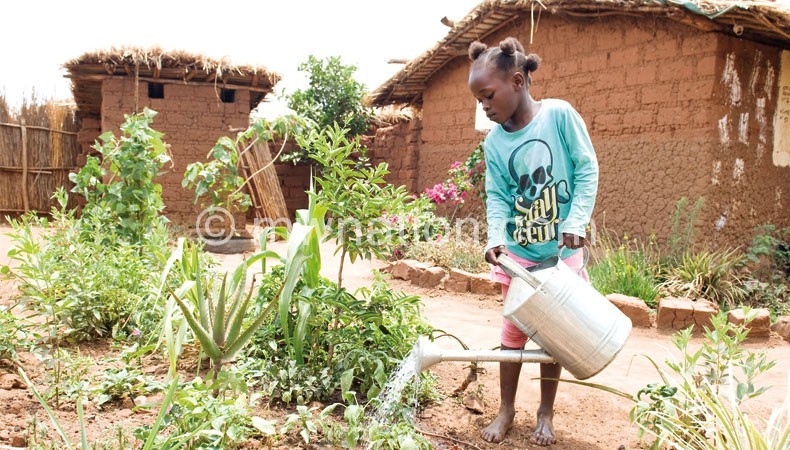Food crisis hits Dzaleka
Malnutrition is stalking the country’s biggest refugee camp, Dzaleka in Dowa, after rations were slashed following funding cutbacks by the international donor community.
UN High Commission for Refugees (UNHCR) southern Africa spokesperson, Tina Ghelli, said a humanitarian disaster is looming among the 24 000 refugees at the camp.

“Children less than five years, child-headed households, the chronically ill, disabled persons, pregnant and lactating mothers, female-headed households and the elderly are feared to be on the brink of malnutrition. This could lead to an emergency situation if the nutrition indicators further deteriorate.” Ghelli said.
Some women are said to be engaging in “survival sex” to feed their children, while police report a general rise in anti-social behaviour.
Sources in the aid community hinted that Malawi’s tough policy on refugees—who are not allowed to leave the camp to seek work, do business or farm—is fuelling the crisis.
Camp inmates fear for the worst if they are not allowed to earn additional income by working.
“The situation is really bad, we are starving,” said Prime Hakusweyezu, a Rwandan refugee who has been in the camp since 2010. “At the hospitals, there is no medicine; if you get sick, you’re just given painkillers.
“As refugees, we have difficulties in finding money, so life is really tough with reduced rations. We are still waiting from WFP, UNHCR and government of Malawi to help us.”
Deputy camp director Hilary Namakwa called for urgent action, saying that “normally each person is supposed to receive at least 19.9kg of maize per month—three times what the refugees are getting now”.
Responding to amaBhungane’s questions, the government pledged to review laws that restrict the economic activities of refugees, but warned that this would take time.
Principal secretary in the Ministry of Home Affairs, Beston Chisamile, said Malawi is currently using the 1989 Refugee Act, which adheres to the restrictive conventions of 1951.
Said Chisamile: “We are working on reviewing this law so that we will lift some of the restrictions. This is a long process; we have to do a lot of consultations. We need to help our friends.”
A statement by the UN’s World Food Programme (WFP) said funding shortfalls have forced it to reduce rations and even suspend provision of some foodstuffs over the past six months.
The WFP said refugees are receiving 40 percent of their daily calorie requirements: 6.7kg of maize grain, 0.75kg of pulses and 2kg of fortified corn-soya flour per person per month.
The agency said that without additional funding, maize stocks, even at a half-ration, are set to run out in the middle of this month, while stocks of vegetable oil, pulses and Super Cereal are likely to be depleted by May.
WFP said $2 million (about K1.5 billion) is needed to resume provision of full food rations for the next 12 months.
The Dzaleka refugee camp has hosted refugees for more than 15 years. Most refugees come from the Democratic Republic of Congo, but fugitives from conflicts in Ethiopia, Somalia and Rwanda are also present.
Ghelli said the inability of the refugees to support themselves over such a long period and donor fatigue had led funders to “divert their commitments”.
Some 2.8 million Malawians are food insecure and in need of food assistance. Government has so far imported 30 000 metric tonnes of maize from Zambia and is expected to import more from Tanzania. n





